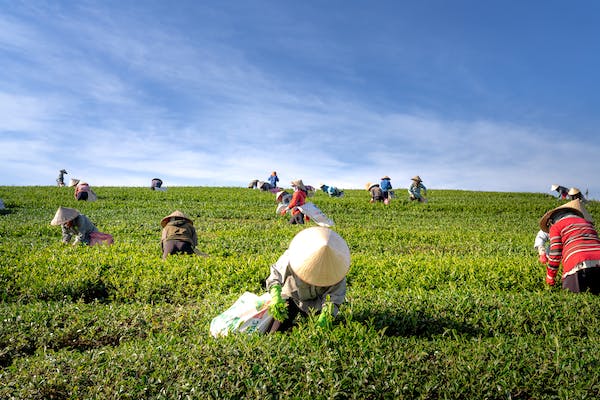
The Advantages and Disadvantages of Rural Life

Advantages and disadvantages of rural life; a distinctive lifestyle that is frequently typified by tight-knit communities, easy access to nature, and a slower pace of life may be had by residing in rural locations. We shall examine the benefits and drawbacks of rural life in the contemporary world in this essay.
We will explore the many dimensions that characterize rural living and how they affect people and communities, from social and economic elements to infrastructural problems and environmental concerns. Our goal in analyzing the benefits and drawbacks of living in the country is to provide readers a thorough understanding of what it means to choose a rural lifestyle in the modern world.
Overview of Life in the Countryside
Advantages and disadvantages of rural life; greetings from the countryside, where life moves a somewhat slower pace and the grass is greener and the air is fresher. Living in the country provides a change of pace from the bustle of the city and has its own set of benefits and drawbacks that are worth learning about.
Describe Rural Regions
Advantages and disadvantages of rural life Tractors outnumber traffic bottlenecks in rural places, and the nearest Starbucks may be a good ol’ hay bale’s toss away. These areas are usually typified by large stretches of land, few inhabitants, and a close bond with the natural world.
An Historical View of Rural Life
In the past, farming, neighborhood get-togethers, and getting to know your neighbors’ businesses better than your own were all important aspects of rural life. The core of rural living still focuses on tradition, simplicity, and a slower pace of life, even with the changes brought about by modern times.
Benefits of Living in a Rural Area
Strong Community ties, In rural places, your neighbors are your extended family, not simply someone you wave at. Support, friendship, and the odd open-to-all backyard BBQ are provided by close-knit communities.
Availability of Open Spaces and Nature
A life in the country is all about rolling hills, expansive sky, and the sound of crickets lulling you to sleep—forget concrete jungles. The boundless playground that rural regions afford is a haven for outdoor enthusiasts and nature lovers.
Reduced Living Expenses
Bid adieu to extravagant rental costs and $10 specialty coffees. Rural life frequently has lower costs, which makes it simpler to buy a house, patronize neighborhood companies, and perhaps even launch the alpaca farm of your dreams.
The Drawbacks of Country Living
Restricted Utilization of Facilities and Services; when the closest supermarket is an attractive one-hour drive away, the ease of city living may become rather alluring. People in rural locations can have limited access to shopping, healthcare, and other basic amenities, which forces them to be resourceful.
Lack of Social Opportunities and Isolation
Friday night lights may not allude to clubbing in rural areas, but rather to astronomy. Although the tranquility is pleasant, loneliness and a small social circle can make one feel like the only cow in a large field.
Obstacles to Employment and Economic Prospects
A profession or economic opportunity may be limited in rural locations unless you have grand ambitions of raising heirloom tomatoes or herding sheep. Finding acceptable work can often feel like looking for a needle in a haystack due to a lack of certain sectors and job marketplaces.
Possibilities for Economic Growth in Rural Areas
Farming and Agricultural Activities; a fruitful basis for agricultural endeavors, rural regions are home to vineyards and apple orchards. Farming enables people to develop the land and enjoy the fruits of their labor; it’s more than simply a job.
Rural Travel and Hospitality Sector
Travelers looking for a taste of country living should head to rural areas because of their gorgeous scenery, cozy bed and breakfasts, and interesting local attractions. The tourism and hospitality sectors provide entrepreneurs the chance to highlight the charm and friendliness of small towns.
Opportunities for Telecommuting and Remote Work
Who says that the only way to advance in your job is to have a fancy office in the city? Professionals may now trade in their skyscrapers for sunsets and their offices for cornfields thanks to telecommuting and remote work. Those that embrace technology can continue to be linked to the global economy while working from the comforts of their rural getaway.
Rural Living’s Social and Community Aspects
Volunteering and Community Engagement; living in a rural region generally means being a part of tighter-knit communities where people help one another out. Living in a rural area may strengthen a feeling of community, whether it’s by planning a community event or helping out during harvest season.
Conservation of Cultural Heritage and Preservation
Traditions and history abound in rural places. Locals have a special chance to appreciate and maintain their cultural history through storytelling, local festivals, and folk music and crafts. This keeps the community’s feeling of identity and pride intact.
The difficulties and constraints associated with rural infrastructure
Problems with connectivity and transportation; living in a remote area can be difficult at times due to the lack of connectivity and transit choices. Long commutes, a dearth of public transit, and restricted access to basic services might be issues for locals. Both economic prospects and living quality may be impacted by this.
Accessibility to Healthcare and Education
Access to high-quality education and healthcare facilities is sometimes a challenge in rural communities. Long commutes for medical attention or educational resources may be required of residents, which can be particularly difficult for vulnerable groups like the elderly and young children.
Natural Resource Conservation and Sustainable Practices
Environmental Benefits and Concerns in Rural Settings, Natural riches and beauty are often found all around rural places. Locals have a special chance to preserve and safeguard these resources by engaging in sustainable activities including water management, animal protection, and land stewardship. By doing this, we can preserve a healthy ecosystem for next generations.
Effects of Development and Agriculture on the Rural Environment
Although agriculture plays a significant role in rural economies, it may also have negative effects on the environment, including soil erosion, deforestation, and water pollution. In rural regions, striking a balance between the demands of environmental preservation and economic growth is a persistent issue that calls for careful planning and sustainable methods.

Conclusion on Advantages and disadvantages of rural life
In conclusion, people who live in rural locations encounter a variety of advantages and difficulties that influence their quality of life has many benefits, such as a strong feeling of community, a close connection to environment, and economic prospects, but there may also be drawbacks, such as poor infrastructure, social opportunities, and services.
People may decide if living in a rural area fits with their beliefs and aspirations by learning about and enjoying the many aspects of this way of life. In the end, the decision to choose a rural lifestyle in the modern world is a personal one that necessitates balancing the benefits and drawbacks in order to establish a satisfying and long-lasting way of life.
FAQs on Advantages and disadvantages of rural life
What are a few typical benefits of rural living?
What are the common obstacles that people living in remote locations encounter when trying to access facilities and services?
How can rural communities deal with concerns of sustainability in the environment and infrastructural development?
Are there any particular career prospects that come with living in a rural area that people might look into?









Leave a Reply